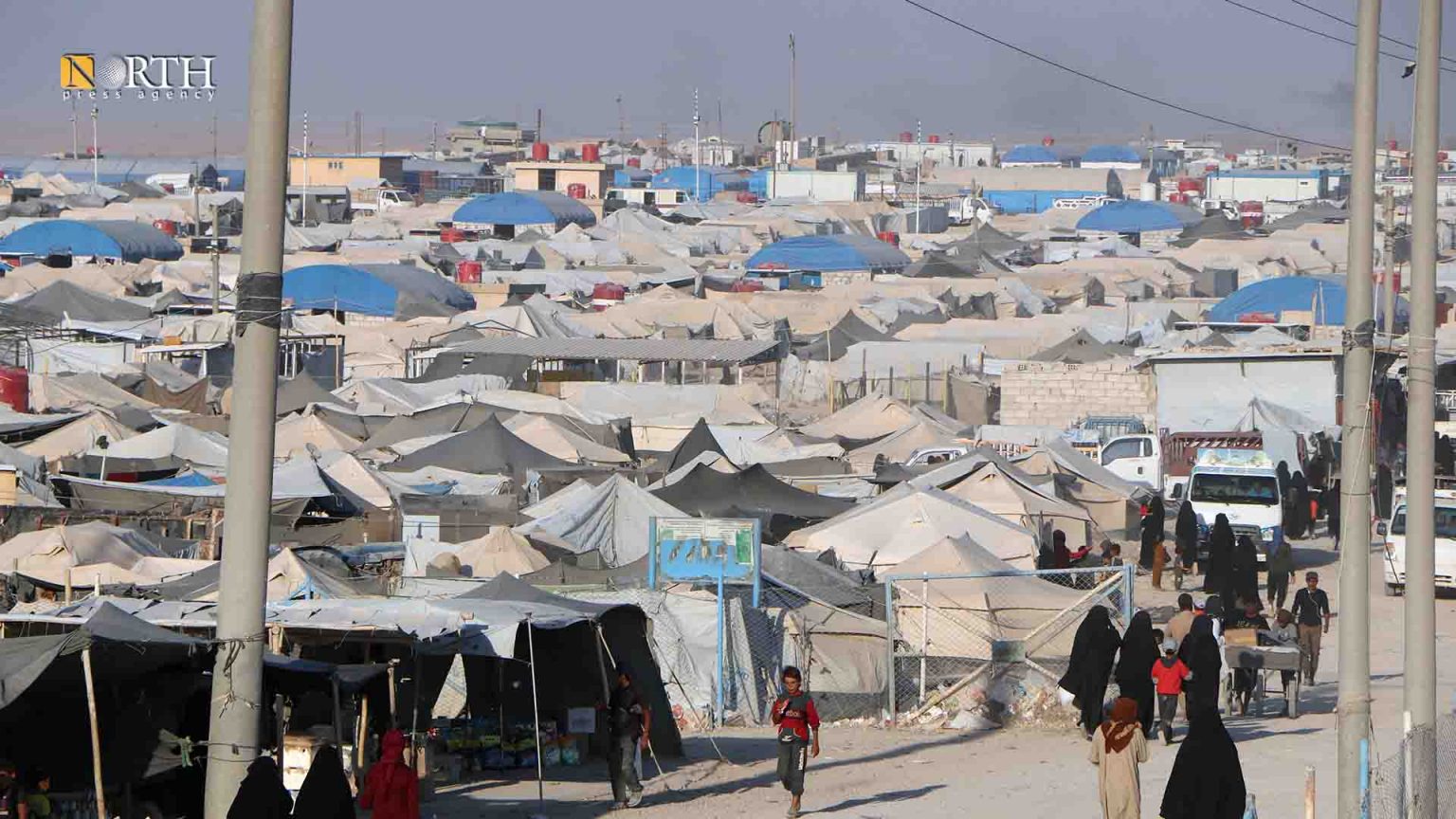New batch of displaced Syrians to leave Hawl camp, NE Syria: camp official
HASAKAH, Syria (North Press) – Muhammad Bashir, an official of the Relations Office at Hawl Camp, northeastern Syria, said on Sunday that a new batch of displaced Syrians residing in the camp will be evacuated on Monday.
“The batch includes 73 families including 289 persons from Deir ez-Zor and its countryside,” Bashir told North Press.
“The mechanism for sending these families out of the camp is the tribal guarantees that were adopted about a year and a half ago,” Bashir added.
In an exclusive interview with North Press, Bashir noted that many individuals left the camp through tribal guarantees, and this is the 27th batch that will be released from of the camp.
“There was a decision to take all Syrians out of Hawl camp, but we did not receive any new instructions regarding this,” he stated.
“A large number of the displaced do not have identity papers, and some residents of Idlib and Homs have special statuses, but we will definitely find suitable solutions for them,” he noted.
Bashir indicated that the only mechanism used for a year and a half to evacuate the residents so far is tribal guarantees.
The Autonomous Administration of North and East Syria recently moved ISIS families from the migrant sector in the camp to Roj camp in the countryside of Derik to relieve the pressure.
The decision to take the displaced out of Hawl Camp was one of the recommendations of the tribal conference held in early May 2019 in Ain Issa.
On October 1, 48 families consisting of people left Hawl Camp.
The Autonomous Administration previously allowed the exit of many displaced people in Hawl Camp as part of an initiative launched in June 2019, a month after a tribal conference was held in Ain Issa district.
Hawl Camp includes the largest number of women and children of ISIS militants from Syria and Iraq, whose number reaches about 11,000, according to the camp administration.
Hawl Camp witnesses occasional escape attempts by ISIS families, in addition to assassinations and the burning of tents, according to the camp administration.

